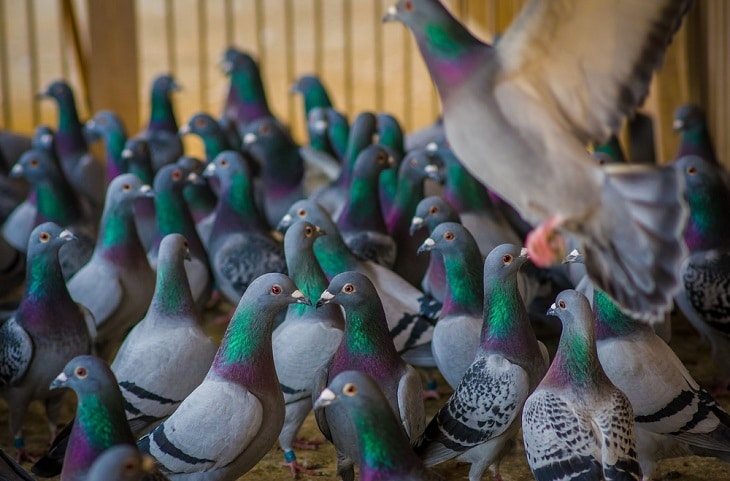Jasmine Birtles
Your money-making expert. Financial journalist, TV and radio personality.


If you think pigeon racing is just a quaint pastime for those who have nothing better to do with their weekends, think again!
With substantial amounts up for grabs as prize money for competition winners, it certainly could end up being a rather lucrative hobby.
Let’s take a little peek into the wonderful world of pigeon racing:
Even though there is no conclusive evidence, fanciers believe that pigeon racing may go as far back as 220AD.
The modern version of the sport, however, originated in 19th-century Belgium. It quickly gained popularity, spreading across Europe and, eventually, the rest of the world.
Great Britain was quick to catch the pigeon racing fever and the first major race took place in 1881. By 1886, the Royal Family became involved when King Leopold II of Belgium gifted them special breeding stock.
The tradition continues to this day and, in 1990, one of Queen Elizabeth’s pigeons even won a race! Her Majesty is also the president of the Royal Pigeon Racing Association (RPRA), which is the governing body for pigeon racing in the UK.
Despite this rich pigeon racing history, the sport is declining in the UK as recognised clubs and federations report a membership decline of about 5% per year.
Which means if you want to try your hand at winning, now’s the time! Less competition!
Still not convinced to take up pigeon racing?
Well, maybe £1,500 prize money for winning a regional race will change your mind!
And once fanciers hit the big leagues of international single loft races, six-figure prize money is not at all an unusual occurrence.
If you’re ready to sign up and start feathering your nest with pigeon prize money, there are a few things you will need to do to set yourself up.
Getting one or two pairs of pigeons to start off with is probably a wise idea. This way, you can test your interest without committing to a whole ‘fleet’ of birds.
Most breeders, however, seem to prefer selling upward of three pairs per buyer. The amount you will spend on these birds really varies, but the going rate is between £25 and £30 per bird.
Crazy fact: In February 2012, the world’s most expensive pigeon sold for $328,000 (£207,132), to a Chinese shipping magnate.
Once you have your pigeons, you will need to find them a home. While many fanciers have lofts of their own for birds, you can keep yours in a shared space, where a loft manager will take care of them.
Do a quick Google search to find a pigeon racing club close to where you stay. Being part of a club is essential if you want to participate in competitions and pursue the sport professionally.
You can also get in touch with RPRA and ask them to refer you to your local club. They will also send you a pigeon racing starter pack.
According to Pigeon Racing UK & Ireland, the start-up cost to get birds, a pigeon loft to settle them in and underway with club racing is about £300.

While it’s all fun and games to dream about winning six-figure sums at pigeon racing competitions, the reality is that it will probably take years to reach that point.
In the meantime, there are loads of other ways to make money from pigeon racing. Here are a few ideas:
You’ll notice when scrolling through websites, Facebook pages or Gumtree advertisements selling pigeons that the photographs simply do the birds no justice. Most end up looking like nothing more than the birds you’ll see pecking at the ground in grimy urban squares.
So, there’s a whole niche!
If you’re a talented photographer, you could make a roaring trade capturing these special birds in all their glory!
Read more about making money as a pet photographer.
If you’re not half bad at carpentry, you could always make an extra buck by building pigeon lofts.
Depending on the size and complexity, they can sell for anything between £450 and £2000.
Once you’ve gotten the hang of the sport, why not share the knowledge you’ve gained with other aspiring fanciers?
If you charge £10 per person and have at least three people attending each workshop, you can make a decent bit of pocket money.
If you’ve reached a more expert level of pigeon racing, why not write a guide to the sport?
This is exactly what one passionate fancier named Elliot Lang did when he put all his personal knowledge down on paper and published How to Breed, Race, Win and Make Money With Racing Pigeons.
He is selling the book online for just under $30 per copy!

sigma
A very interesting article.